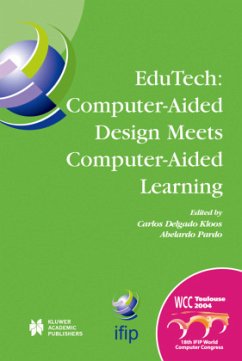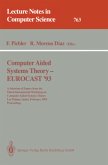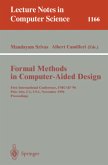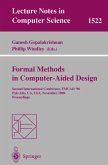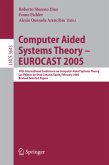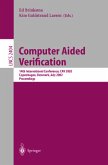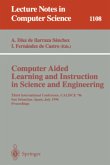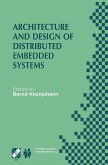Computation and communication technologies underpin work and development in many different areas. Among them, Computer-Aided Design of electronic systems and eLearning technologies are two areas which, though different, in fact share many concerns. The design of CAD and eLearning systems already touches on a number of parallels, such as system interoperability, user interfaces, standardisation, XML-based formats, reusability aspects, etc. Furthermore, the teaching of Design Automation tools and methods is particularly amenable to a distant or blended learning setting, and implies the interconnection of typical CAD tools, such as simulators or synthesis tools, with eLearning tools. There are many other aspects in which synergy can be found when using eLearning technology for teaching and learning technology.
EduTech: Computer-Aided Design Meets Computer-Aided Learning contains the proceedings of the EduTech2004 workshop, which was held in August 2004 in conjunction withthe 18th IFIP World Computer Congress in Toulouse, France, and sponsored by the International Federation for Information Processing (IFIP). Organized by IFIP WG 10.5 (Design and Engineering of Electronic Systems) in cooperation with IFIP WG 3.6 (Distance Education), the workshop proceedings explore the interrelationship between these two subjects, where computer-aided design meets computer-aided learning. The book includes papers related to eLearning in the area of electronic CAD, but also includes contributions tackling general issues of eLearning that are applicable to this and many other areas such as reusability, standards, open source tools or mobility.
This book will be of value to those interested in the latest developments in eLearning in general, and also to those coming from the electronic design field who want to know how to apply these developments in their area.
EduTech: Computer-Aided Design Meets Computer-Aided Learning contains the proceedings of the EduTech2004 workshop, which was held in August 2004 in conjunction withthe 18th IFIP World Computer Congress in Toulouse, France, and sponsored by the International Federation for Information Processing (IFIP). Organized by IFIP WG 10.5 (Design and Engineering of Electronic Systems) in cooperation with IFIP WG 3.6 (Distance Education), the workshop proceedings explore the interrelationship between these two subjects, where computer-aided design meets computer-aided learning. The book includes papers related to eLearning in the area of electronic CAD, but also includes contributions tackling general issues of eLearning that are applicable to this and many other areas such as reusability, standards, open source tools or mobility.
This book will be of value to those interested in the latest developments in eLearning in general, and also to those coming from the electronic design field who want to know how to apply these developments in their area.

